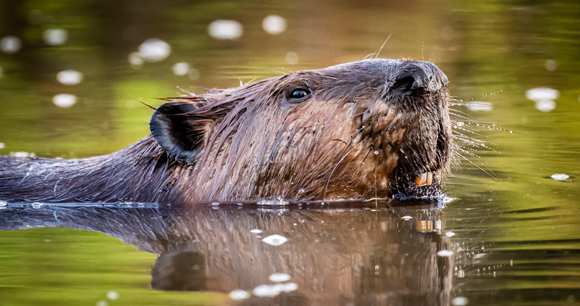
Washington, DC—Today, the Animal Welfare Institute (AWI) announced the eight recipients of its Christine Stevens Wildlife Award who are developing creative tools and strategies to reduce or prevent conflicts between wild animals and humans.
Established in 2006, the award provides individual grants of up to $15,000 and is named in honor of AWI’s late founder and longtime president, who dedicated her life to reducing animal suffering both here and abroad, and firmly believed in win-win solutions to human-wildlife conflicts. Stevens founded AWI in in 1951 to end the cruel treatment of animals in experimental laboratories. Inevitably, her work expanded to take on other animal welfare causes, including protecting vulnerable species, reforming methods used to raise animals for food, banning steel-jaw leghold traps, ending commercial whaling, and much more.
To date, the grant program has distributed more than $1 million to 91 recipients who have conducted research involving nearly every major group of animals. Additionally, these recipients have promoted nonlethal solutions to wildlife conflicts and humane methods to study wildlife, contributing to a growing body of scientific evidence.
“Our perceived inability to coexist with wildlife has spawned a multibillion-dollar industry of federal, state, and private wildlife control agents who often address such ‘problems’ using lethal means,” said DJ Schubert, AWI’s wildlife biologist. “AWI is proud to fund such diverse, exciting research that has important welfare, financial, and safety benefits.”
The 2022 Christine Stevens Wildlife Award grant recipients are:
- Molly Alves of Utah State University and The Tulalip Tribes to analyze beaver translocation data to inform humane beaver management policies, avoid lethal removal, and restore vital ecosystems.
- Hee Jin Chung of the University of California, Davis to determine predictors of hunting behavior among domestic house cats and test the effectiveness of owner interventions, such as interactive play, to reduce the animals’ prey drive outdoors.
- Dr. Catherine Haase of Austin Peay State University to evaluate how bats respond to temperature changes in artificial roosts to provide healthy roosting environments and mitigate human-bat conflicts.
- Dr. K. David Hyrenbach of Oikonos Ecosystem Knowledge to assess and mitigate the impact of light pollution on wedge-tailed shearwater seabirds in O’ahu, Hawai’i. Artificial light can cause these seabirds to become disoriented and “fall out” from the sky, resulting in injuries or death.
- Kristen Mazzarella of Mote Marine Laboratory to use satellite tracking to study the movement patterns of rehabilitated adult male sea turtles, informing recovery efforts.
- Dr. Benjamin Sacks of the University of California, Davis to extract DNA from the fecal matter of alpine carnivores to map endangered keystone prey species, such as white-tailed jackrabbits and snowshoe hares, along the Sierra Nevada and Cascade ranges in California.
- Monica Serrano of the University of California, Davis to conduct a genetic analysis to help identify the individual and population characteristics of coyotes in San Francisco, benefiting future monitoring efforts.
- Dr. Lance Barrett-Lennard and Dr. Valeria Vergara of the Raincoast Conservation Foundation to use visual and acoustic methods to monitor endangered southern resident orcas, their foraging behaviors, and underwater noise from vessels encroaching into a protected area of the Salish Sea.
Click here for more information about the Christine Stevens Wildlife Award and the 2022 winners. Applications for 2023 awards are due by March 27.
Marjorie Fishman, Animal Welfare Institute
[email protected], (202) 446-2128
The Animal Welfare Institute (awionline.org) is a nonprofit charitable organization founded in 1951 and dedicated to reducing animal suffering caused by people. AWI engages policymakers, scientists, industry, and the public to achieve better treatment of animals everywhere—in the laboratory, on the farm, in commerce, at home, and in the wild. Follow us on Facebook, Twitter, and Instagram for updates and other important animal protection news.